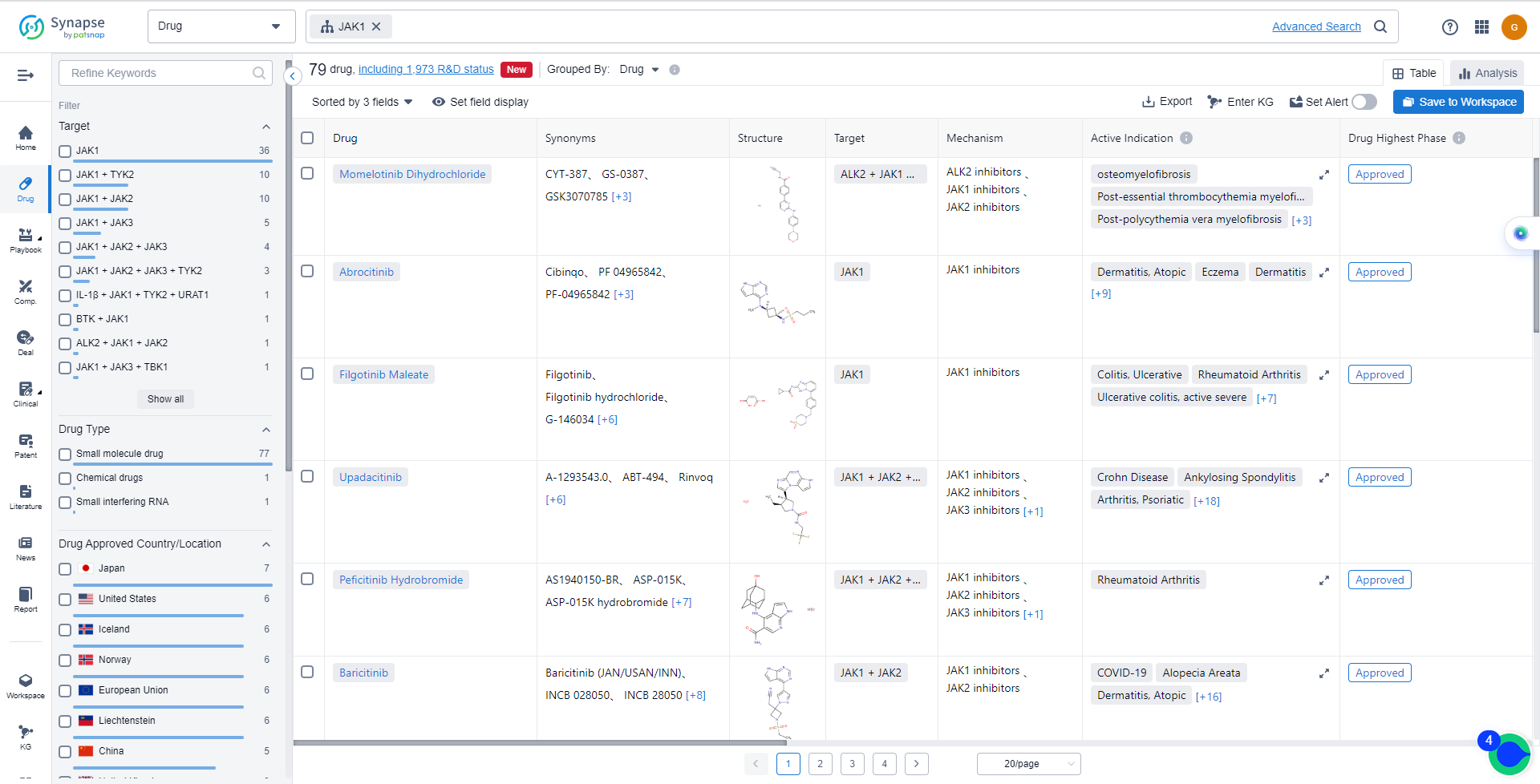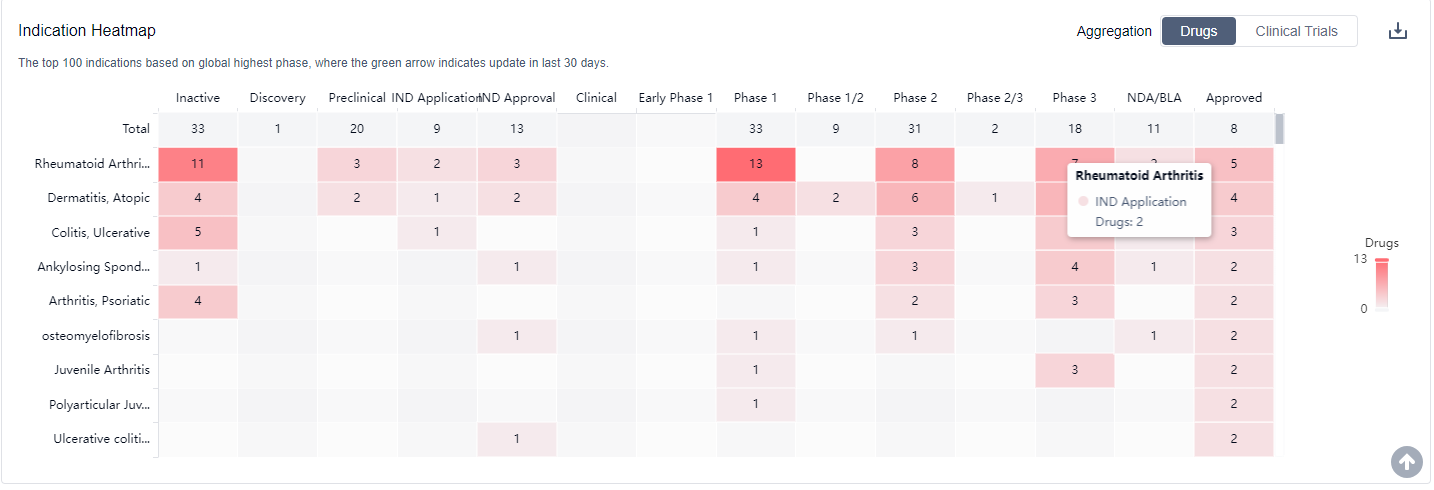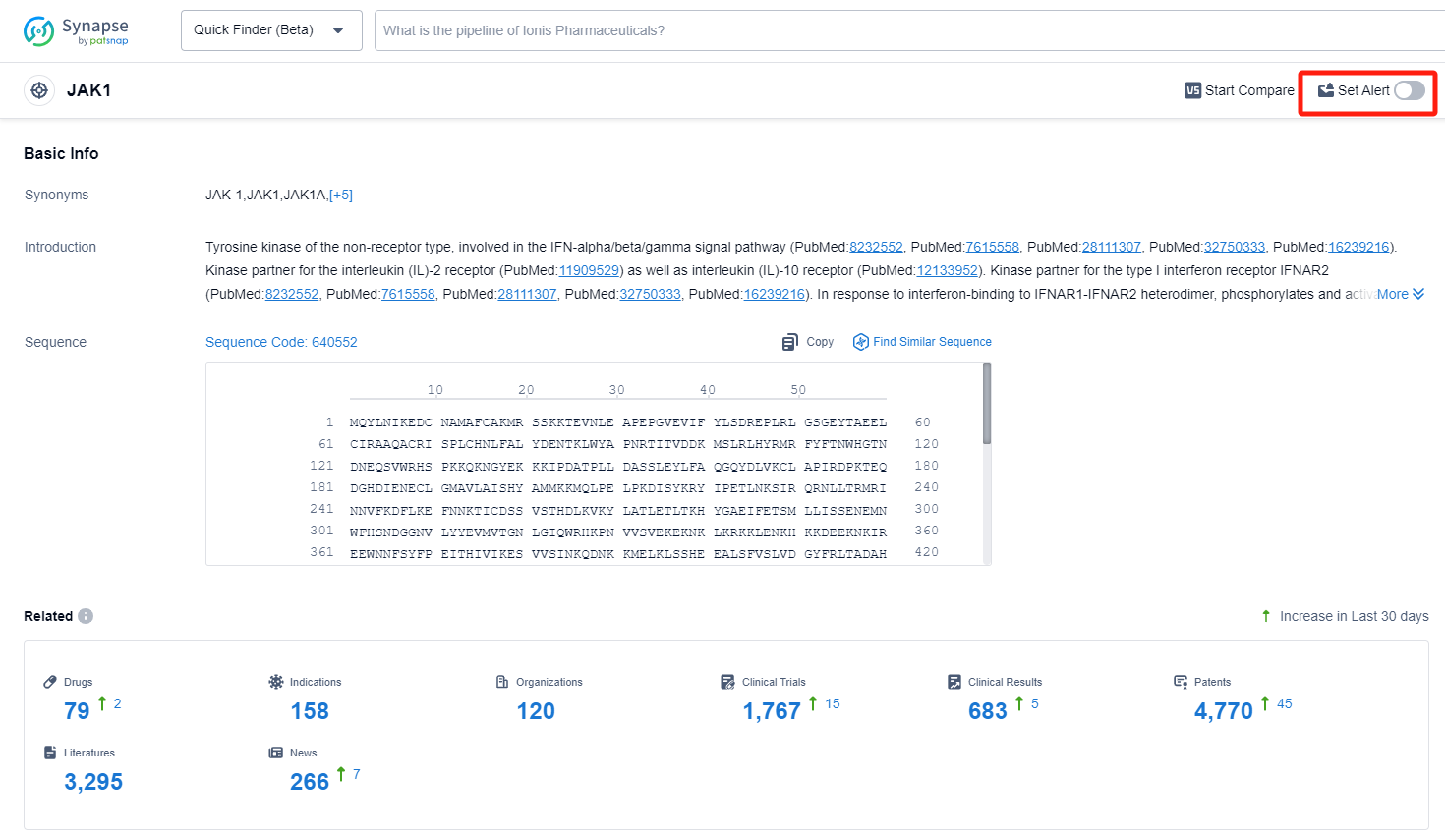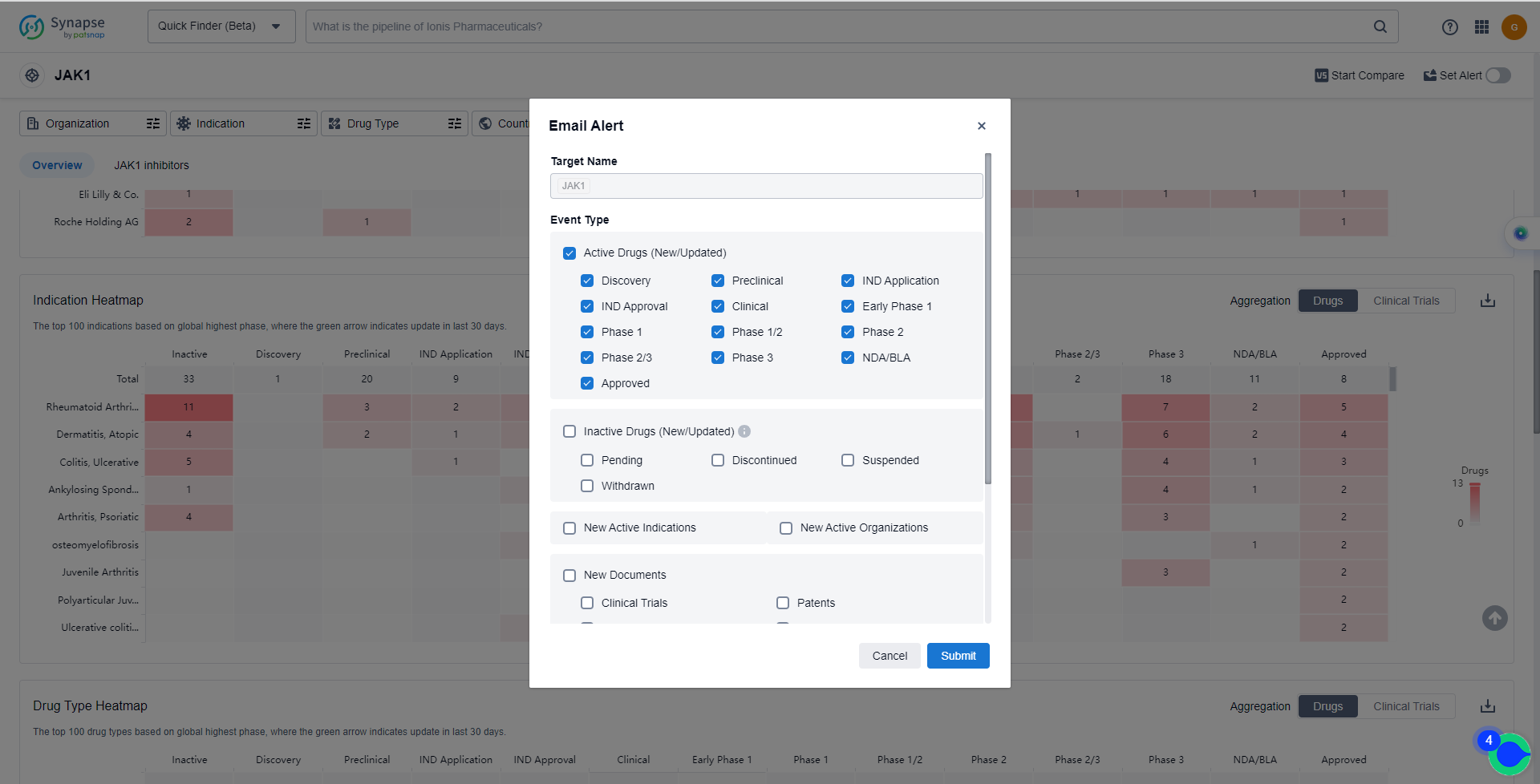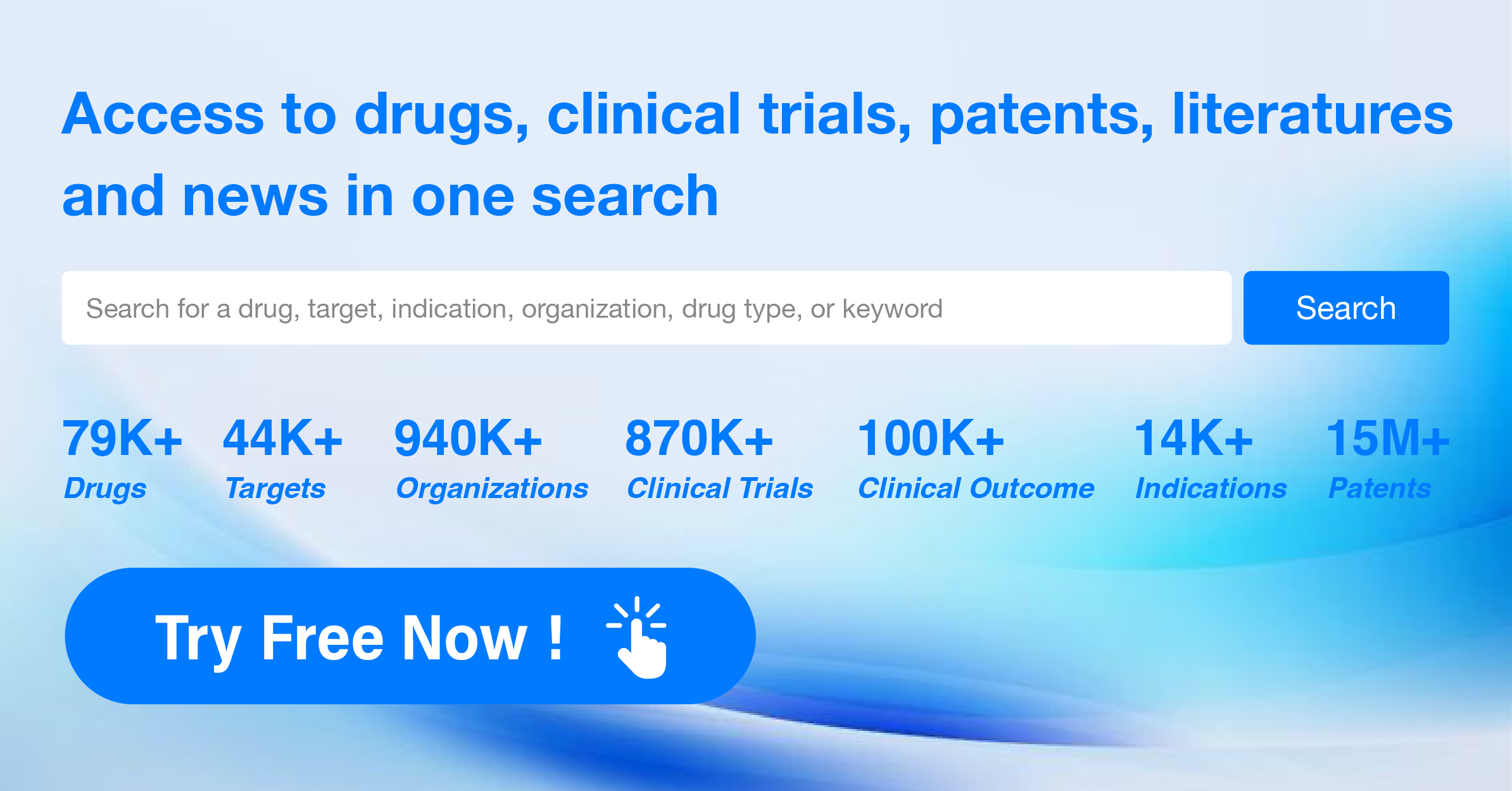Deciphering JAK1 Inhibitors: Your Guide to Rapidly Accessing the Newest Advances
JAK1, or Janus kinase 1, is an enzyme that plays a crucial role in the human body's immune response and inflammatory processes. It is a member of the JAK family of proteins, which are involved in signal transduction pathways. JAK1 is primarily found in immune cells and is responsible for transmitting signals from various cytokine receptors, including those for interleukins and interferons. Activation of JAK1 triggers a cascade of events that ultimately regulate immune cell function, cell growth, and differentiation. Understanding the role of JAK1 has led to the development of targeted therapies that aim to modulate its activity for the treatment of various autoimmune and inflammatory diseases.
Janus kinase 1 (JAK1) inhibitors are a type of immune modulating medication that inhibit the activity of the JAK1 enzyme, thereby interfering with the JAK-STAT signaling pathway in lymphocytes. They have revolutionized treatments for a range of disorders, such as myeloproliferative neoplasms, rheumatoid arthritis, inflammatory bowel disease, and multiple immune-driven dermatological diseases.
The development of JAK1 inhibitors began with the identification of potential inhibitors that work by blocking its tyrosine gated ATP binding site. The first JAK inhibitor to reach clinical trials was tofacitinib, a specific inhibitor of JAK3 that also inhibits JAK1 and JAK2 to a lesser extent.
The analysis of the current competitive landscape of target JAK1 reveals that Pfizer Inc. and Incyte Corp. are the leading companies in terms of R&D progress. Rheumatoid Arthritis is the most targeted indication, with the highest number of approved drugs. Small molecule drugs are progressing most rapidly under the current target, indicating intense competition. The countries/locations developing fastest under the target JAK1 include Japan, United States, European Union, and China. China has shown progress in the development of drugs targeting JAK1. Overall, the target JAK1 presents a competitive landscape with multiple companies and drug types involved in the development of drugs for various indications. The future development of target JAK1 is expected to continue with advancements in R&D and potential approvals for additional indications.
How do they work?
JAK1 inhibitors are a type of medication that target and inhibit the activity of the Janus kinase 1 (JAK1) enzyme. JAK1 is a protein involved in the signaling pathways of various cytokines, which are important molecules in the immune system. By inhibiting JAK1, these inhibitors can modulate the immune response and have therapeutic effects in certain diseases.
From a biomedical perspective, JAK1 inhibitors are primarily used in the treatment of autoimmune and inflammatory conditions such as rheumatoid arthritis, psoriasis, and inflammatory bowel disease. These inhibitors work by reducing the production of pro-inflammatory cytokines, thereby suppressing the immune response and alleviating symptoms associated with these conditions.
It is important to note that JAK1 inhibitors are a specific class of drugs that selectively target the JAK1 enzyme. There are also other JAK inhibitors available that target different subtypes of the JAK enzyme family, such as JAK2 and JAK3 inhibitors. Each subtype has its own unique role in cytokine signaling, and targeting specific subtypes allows for more precise therapeutic interventions.
List of JAK1 Inhibitors
The currently marketed JAK1 inhibitors include:
- Momelotinib Dihydrochloride
- Abrocitinib
- Filgotinib Maleate
- Upadacitinib
- Peficitinib Hydrobromide
- Baricitinib
- Tofacitinib Citrate
- Ruxolitinib Phosphate
- Deuterated Ruxolitinib
- Golidocitinib
For more information, please click on the image below.
What are JAK1 inhibitors used for?
JAK1 inhibitors are primarily used in the treatment of autoimmune and inflammatory conditions such as rheumatoid arthritis, psoriasis, and inflammatory bowel disease. For more information, please click on the image below to log in and search.
How to obtain the latest development progress of JAK1 inhibitors?
In the Synapse database, you can keep abreast of the latest research and development advances of JAK1 inhibitors anywhere and anytime, daily or weekly, through the "Set Alert" function. Click on the image below to embark on a brand new journey of drug discovery!
